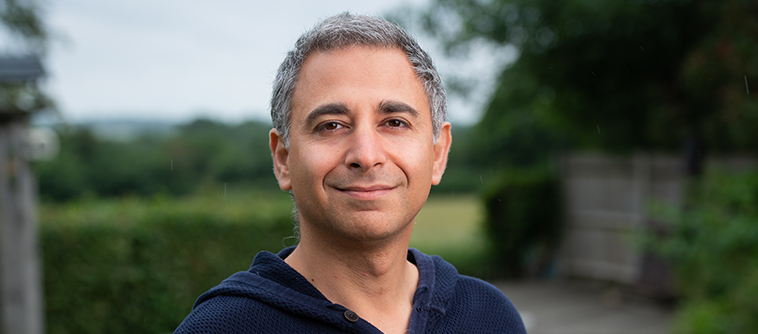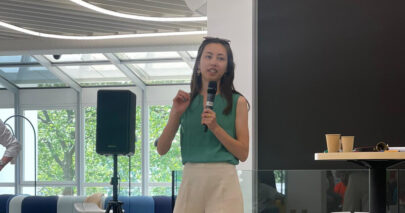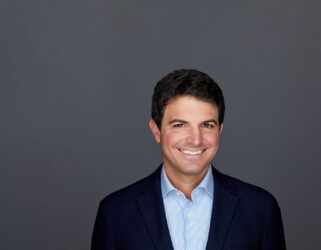
In April – less than two years after its launch – Global HR platform Oyster was valued at more than $1 billion, officially making it a ‘unicorn.’ In the startup world, this signifies the holy grail of business success. However, for founder and CEO Tony Jamous (MBA 2009), such markers of accomplishment are secondary to his central priority.
“I am increasingly less attached to these labels. The path is long, and so it is really about a commitment to the mission; that is what drives us,” he said.
Oyster is a global employment platform that allows companies to hire remote workers anywhere in the world. Every aspect of the employment process can be administered through the platform – from local legalities that govern contracts to payroll rules and health and pension benefits. The onboarding time and cost saved by corporates who use the platform is considerable, said Jamous.
“We enable our customers to grow rapidly and efficiently by tapping into a globally diverse talent pool. What used to take months can happen within weeks on the Oyster platform. We also enable them to deliver equity and fairness consistently across geographies,” he said.
Furthermore, Oyster’s one-stop shop offers its clients the prospect of hiring anywhere in the world, thereby saving them money, while extending opportunities way beyond their home territories. According to Jamous, the platform offers a much-needed solution in the current macro-economic climate, where organizations are being urged to reduce overheads and create efficiencies.
“The world right now has an opportunity to react differently to these fragile financial breakdowns. Now we have an opportunity to be more resilient, thanks to distributed work and distributed employment. Hiring outside tier-one cities enables a reduction in headcount costs of anything between 30 to 70%, while bringing people in some countries life-changing salaries,” he said.
Extending opportunity, addressing climate change
Jamous was born in Lebanon and moved to Paris, France as a teenager. His own experience of immigration, and his family’s roots in a country that continues to suffer significant economic and political upheaval underpins his commitment to the potential of distributed work. As a result, he is a self-professed ‘future of work activist’.
“Elevating talent from certain geographies means giving people access to opportunity. A talented software developer in Kenya who works for a local bank will generally find that their human potential is capped beyond a certain point in their career. But if that developer works for a startup in London, or in New York, that cares about development, and that uses the latest techniques of collaboration and communication, they gain immense experience from that exposure,” he said, citing the example of a Nigerian developer who went on to start his own business in his home country, having gained experience and exposure with Jamous’ team at his previous business Nexmo, a platform that helps startups with their communication needs which was bought by Vonage in 2016.
The other aspect of distributed work that provides Jamous with motivational fuel is its relatively reduced climate impact. The very structure of a densely populated metropolitan center demands a high carbon footprint in terms of transportation, energy, waste and construction.
“We are pouring four times the size of New York City in concrete every year to create urban areas and we all know this is not sustainable. Distribute people around the planet, and you change that for the better,” he said.
The next phase
Jamous is keenly aware of the next stage of Oyster’s growth. While capital was easy to come by in 2020 when the COVID-19 pandemic led to ample investment in remote working solutions of all permutations, the investment appetite in 2022 is quite different and necessitates a different approach to expansion.
“Capital has become more expensive and macroeconomic conditions have changed. It has become a question of how to pivot the strategy from ‘growth at any cost’ to ‘efficient growth’,” he said. His priorities now are to stay hyper-focused on Oyster’s mission and align around prudent, rationalized growth strategies to ensure the business’s resilience to turbulence.
Regardless of the challenges, it is clear Jamous is in for the long haul. His innate belief in Oyster’s product and its impact on individuals and organizations continues to drive his ambitions to provide solutions to every obstacle that distributed work may entail.
“What I do is completely aligned with my beliefs and it becomes a driving force in overcoming obstacles and challenges in the startup journey. I am very much looking forward to embracing the challenge,” he said.



